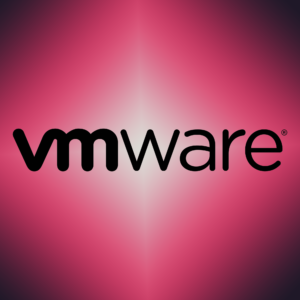 On November 22, 2023, Broadcom acquired VMware. And less than a month later, it started tightening the screws on customers.
On November 22, 2023, Broadcom acquired VMware. And less than a month later, it started tightening the screws on customers.
This wasn’t new behavior for Broadcom, which often behaves like a private equity firm in its acquisitions: slash headcount, reduce R&D, turn down support, and crank up prices in an attempt to earn back their investment. Previous acquisitions where we saw this playbook include CA technologies and Symantec. In the case of CA, this is somewhat ironic, as CA was the mainframe era’s Oracle in terms of its hostile relationship with its customers.
Broadcom over the last decade has transitioned from a chipmaker – remember that? – to an M&A-powered financial engineering firm. Or as a SeekingAlpha article put it, Broadcom is “nothing more than an M&A financial engineering story”. They’ve apparently topped out in chip growth and have turned to acquiring companies.
One PE executive called their 2018 acquisition of CA ““It’s the most bizarre, defocused, non-strategic acquisition of the last decade.” Indeed, after their earlier mega-acquisition of Qualcomm was blocked by the US government, Broadcom has acted like shopper with a gift card burning a hole in their pocket.
What do CA, Symantec, and VMware have in common? Not much. CA sells mainframe and enterprise products to large-sized organizations. Symantec sells anti-virus and security products, sometimes to large organizations but also to SMBs and home users, a market that VMware also reaches.
So while there’s overlap in the customer lists, these are all individual solutions, not knit-together catalogs of offerings. A customer evaluating anti-virus solutions is not going to consider Symantec’s offerings just because they have CA software on their mainframe or VMware in their datacenter.
VMware Hates You
Prior to the transaction closing, VMware President Sumit Dhawan stated that Broadcom doesn’t “intend to have any significant adjustment in our product portfolio strategy.”
That statement aged like milk.
In December of the same year it acquired VMware, Broadcom announced
- A 50% cut to VMware headcount.
- Discontinuation VMware perpetual licenses, forcing all users onto a subscription model.
- Reorganization of its products into bundles, which forced enterprises to buy a cable-TV-like package of services instead of just the products they ewanted.
- A radical downsizing of its partner reseller program.
In other words, VMware has been moved from an innovation strategy to a monetization strategy. The goal now is to extract as much money from its existing customer base before that customer base flees to other products. The daily calculus by VMware executives is not “how can we bring out new features to delight our customers and retain their business by offering them solutions they can’t get anywhere else,” but rather “how can we manipulate our licensing terms and pricing structure to lock in customers for as long as possible and make them pay as much as possible”.
This brings us to a recent story that appeared in The Register:
In an email seen by The Register, [a French VMware distributor] explains that as of April 10th “the minimum number of cores required for VMware licenses will increase substantially, from 16 to 72 cores per command line.”
The email goes on to explain that the impact of the change means that a customer with a server that packs a single eight-core processor will need to pay for 72 cores – meaning they would be paying for 64 cores worth of software they cannot use.
The same announcement also reveals a penalty of 20% for those who don’t renew their annual subscriptions – or are those minimum three-year subscriptions – on time.
According to an anonymous VMware reseller:
“VMware is punishing small and medium business customers that continue to use the platform,” he said. “Clearly VMware does not value the small and medium business community that have built their business leveraging the platform.”
“I don’t understand why they are trying to alienate customers,” he said.
According to another CEO reseller:
The CEO said the Broadcom VMware strategy is to focus on the top 20 percent of the largest accounts and forego the SMB market. “This is a proven playbook for them,” he said. “They drive down the operating costs and do multiyear deals with customers with jacked-up prices, so their costs go down, their revenues go up and they create these great margins. But it is a financial mechanism game.”
Indeed.
In the LowEnd World
We occasionally see hosting offers from providers who chose VMware as their platform. Often, these are companies run by engineers who work on VMware all day long in their corporate jobs, and bring this deep experience to their side ventures.
But those days are over. I doubt we’ll see many VMware-based solutions in our community going forward.

Broadcom CEO Hock Ton being congratulated on his customer service.























Leave a Reply